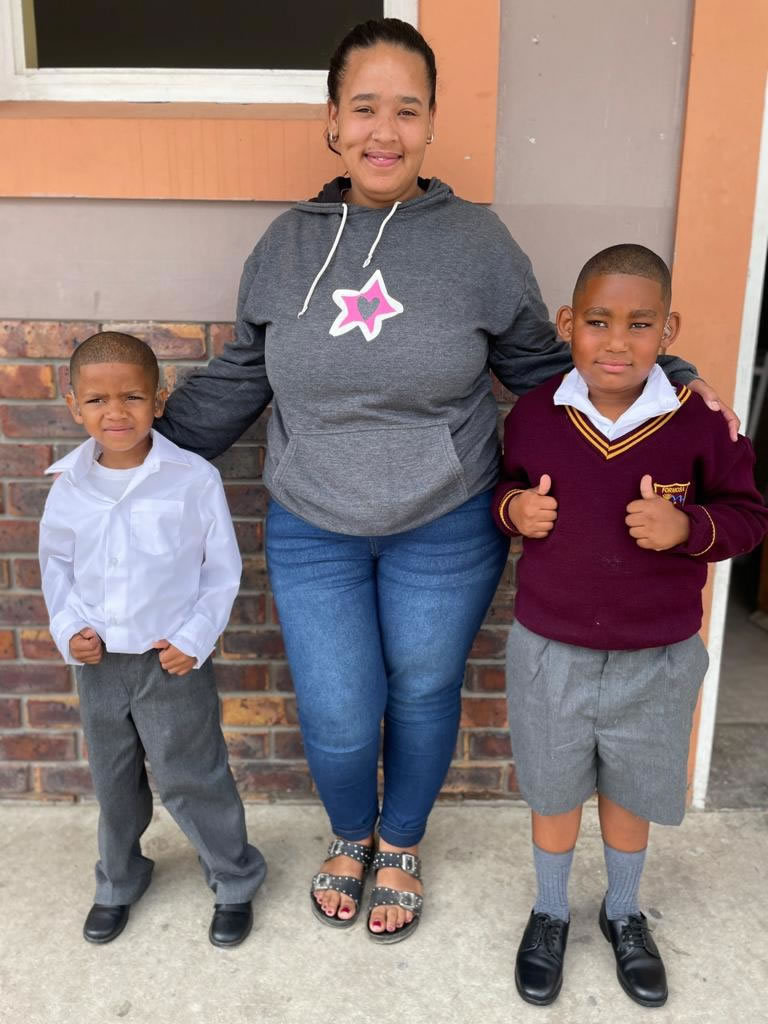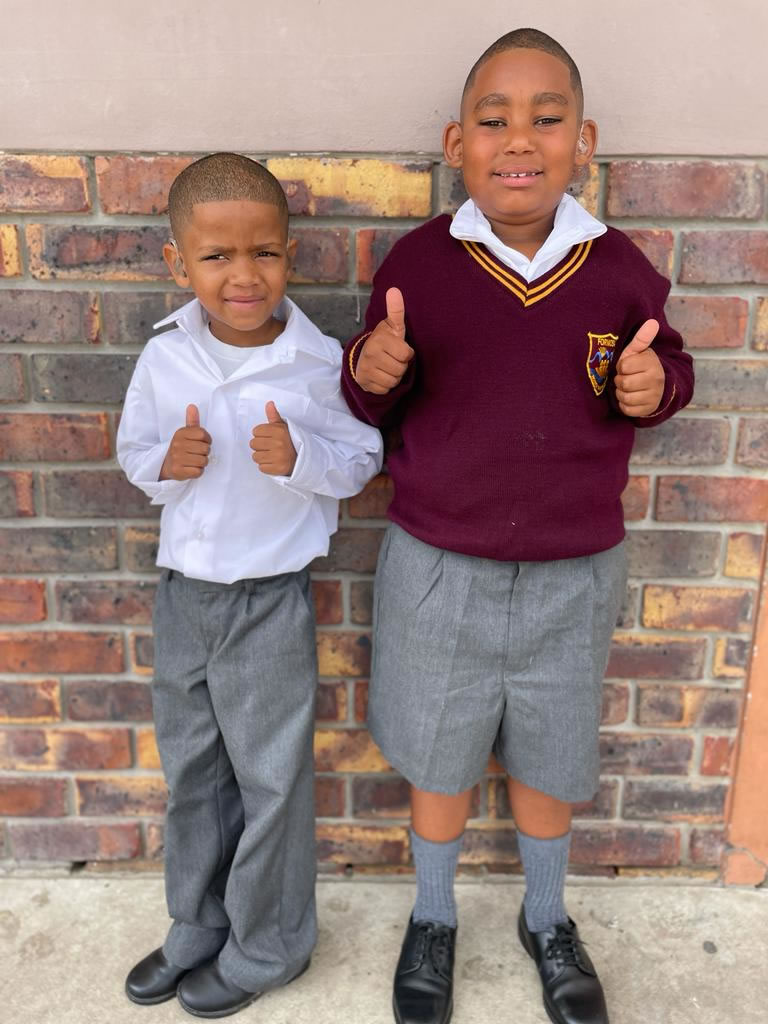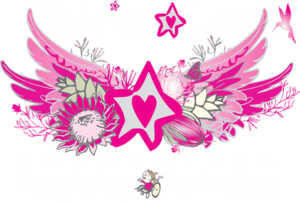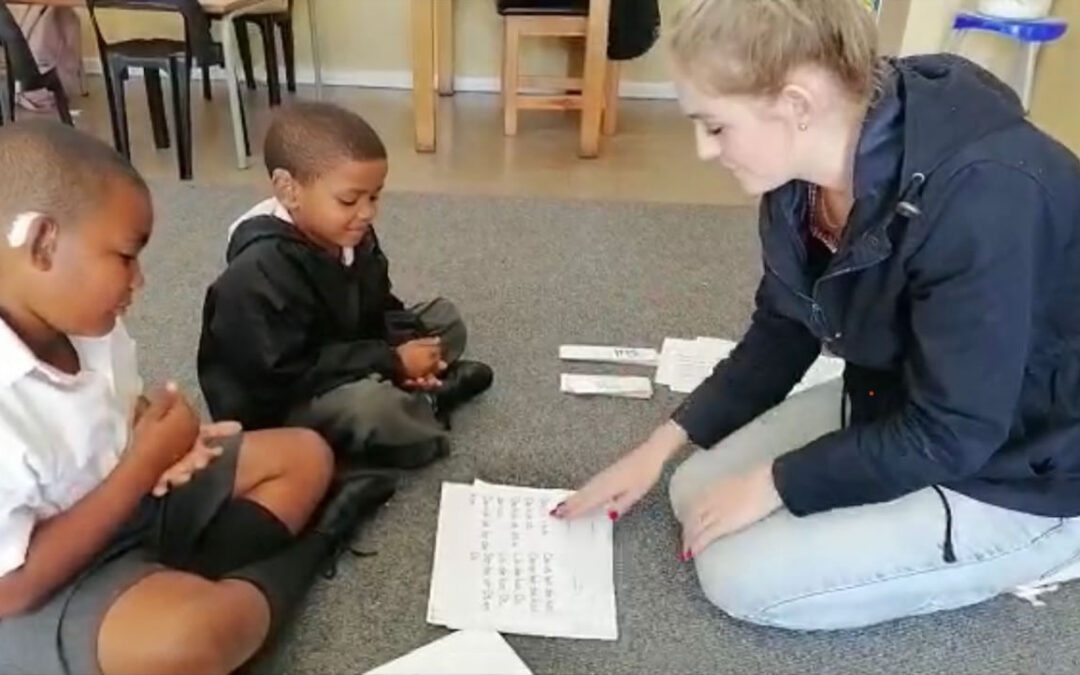Every parent experiences anxiety when considering the schooling options for their child. We all want to ensure the best education, within the best social setting, allowing the most opportunities for emotional, academic, sporting, and social growth.
Imagine the impact of this decision when your child doesn’t fit the mainstream profile. The decisions are made for you by an education system that does not consider the individual needs of disabled children and their families. In smaller communities, parents are told that their children, often from a very young age, need to be sent to special schools far from their homes. Their opinions are not considered and the matter is often entirely in the hands of others to decide. This was the predicament both Wayden and QJ’s parents found themselves in at the beginning of 2023.
Q.J (6 years old) and Wayden (7 years old) joined the Sabrina Love Foundation when they were both diagnosed with profound hearing loss in 2021 and 2022 respectively. They were fitted with high-powered behind-the-ear hearing aids, and received aural, speech and language therapy, with the view of teaching them sign language fluently.
When the time came to enroll for Grade 1, the options were few. These parents were strongly encouraged to take their children to Cape Town schools for the Deaf for assessment where they would board in hostels for their entire schooling career. This option was not acceptable to QJ or Wayden’s parents. How could they send their children away at such a young age? When they returned during the school holidays, how would they communicate with them? How would they help to maintain a sense of family and community?


Our Sabrina Love Foundation ethos is ‘Inspiring Inclusion’ and so for us, the answer was clear. We would advocate for these boys to stay in Plett, attend their local school and remain part of their families. We were determined to mainstream these children with careful planning, by offering training and support and by partnering with a willing school whose Principle and teachers were open to inclusion with Sabrina Love travelling the road with them.
It was important to the team that QJ and Wayden understood their sense of belonging to the Deaf Culture. Their natural language would be South African Sign Language (SASL), but they would have input within a hearing environment too, to enable them to interact and socialise within a hearing world. Charmilyn, a Deaf facilitator, would attend class with them. She would teach them in sign language, and help to facilitate their engagement within the classroom.
Their inspiring Grade 1 teacher, Mrs De Ridder, opened her heart to these 2 Deaf boys. She took the initiative by starting to learn SASL at home and implementing sign as a part of the daily routine in her whole class.. She adapted a method of teaching that included both spoken language and sign language, ensuring that QJ and Wayden were part of each activity. Within the classroom, basic concepts were taught to the class in sign language, and each child now requests to go to the bathroom in sign language only!
QJ and Wayden are both displaying significant academic progress. They are reading, writing, and managing with numeracy. They are playing together and with their hearing peers during break time. They are teaching their parents sign language, and enjoy giggling at their mom and dad’s mistakes. They attend a weekly group at our Sabrina Love DayCare and There they engage with other Deaf learners to form a sense of identity.
The community is learning sign language around them. QJ, Waden and their families are pioneers, refusing to be isolated and instead bringing others into their circle. They are courageous and brave, and hopefully will forge a way ahead for other Deaf learners to be included in mainstream schools and society.
We know that the way ahead has challenges. We commit to collaborating with groups who can support QJ and Wayden, and the many other children who are already following in their footsteps. We seek advice from Deaf individuals and professionals in the field. We don’t pretend to know how it will work out, but these two boys give us hope and energy to continue to pursue inclusion and all that it entails- the highs and lows, the challenges and wins! We say “bring it on!”

